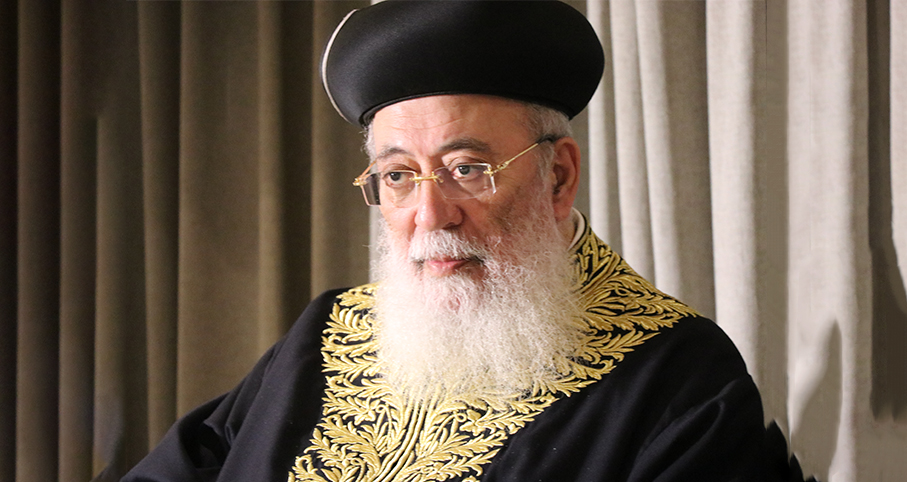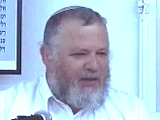- Sections
- Parashat Hashavua
998
What this all teaches us about Am Yisrael is that our strength is in our ability of renewal. While we have low points, they are never final. As in nature, the cold of winter is a preparation for the blossoming of spring. The difficult experience in Egypt was actually the cauldron from which a new nation emerged. During the exile in Bavel, the evil inclination toward idol worship was removed. Even the 2,000 years of exile we have experienced did not destroy us, and it actually spawned within us the desire for a new life, reestablishing our ties to the Land of our Fathers.
What is the secret of our proclivity to rejuvenation? It is not our weapons or our enthusiasm, which our enemies also possess. Rather, Moshe was shown the secret to renewal: "see and sanctify." The gemara (Pesachim 87a) says that our "wall" and "fortresses" are the Torah, shuls and study halls. Even scattered among the nations, we maintained a level of independence and uniqueness. In these spiritual fortresses, we dreamed of a return to Zion and renewed political independence. We observed the month of spring with hope for our future redemption, as well, however far off it seemed. In our times, we have seen the light of day, and the scent of spring blossom before us.
However, the danger has by no means passed. We are still bound by the words, "Like this, see and sanctify." When you see a renewal, call out in the name of Hashem; do not see it as a natural occurrence. We hear calls of: "What is this work for you? Focus on ritual was good for the exile, to help ward off assimilation, but what need for it exists in our own Jewish state? Let everyone define for himself if he is a Jew and what that means to him." However, the Torah says: "Pull to you and take for yourself a Pesach sacrifice ... and slaughter the Pesach" (Shemot 12:21). What is special about this sacrifice? On one hand, the entire nation is described as bringing it at one time (see Kiddushin 42a), thus stressing unity. On the other hand, we declare that it is an offering to Hashem (Shemot 12:27).
What we need to learn is that in every generation, nations rise up to destroy us, whether in the exile or in our own Land. Anti-Semitism just changes faces, clinging to different excuses. We are blamed for militarism, capitalism, oppressing foreigners, etc. The common denominator is that we always stick out like a sore thumb. The nations both hate us and are afraid of us, as Moshe promised so long ago (see Shemot 15:14).

Should I Limit How Much Tzedakah I Give?
Rabbi Yirmiyohu Kaganoff | Kislev 5768

The Laws of Torah Study
Part 3
Rabbi Eliezer Melamed | 5761

What Is the Significance of the Number 40 in Jewish Tradition?
Rabbi Stewart Weiss | Tevet 4 5782

5. Weddings and Engagements during the Omer Period
Chapter 3: Customs of Mourning during the Omer Period
Rabbi Eliezer Melamed | Tishrei 30 5782

P'ninat Mishpat: Rental of an Apartment that Was Not Quite Ready – part II
based on ruling 82031 of the Eretz Hemdah-Gazit Rabbinical Courts
Beit Din Eretz Hemda - Gazit | Iyar 5784

Reassuring His Parents – #314 – part I
Date and Place: 23 Sivan 5670 (1910), Yafo
Beit Din Eretz Hemda - Gazit | Iyar 5785

Tolerance but Not at All Costs
Ayn Aya Shabbat v, 73
Rabbi Ari Shvat | Iyar 5785







